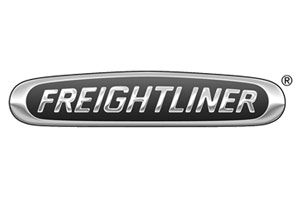Key Takeaways
-
Routine preventative care is the key to avoiding these leading truck breakdown causes. Regularly inspect tires, brakes, engines, and electrical systems to identify and resolve problems before they lead to a breakdown.
-
Regular tire maintenance like checking tire pressure and keeping your wheels aligned can help prevent blowouts and increase your miles per gallon. Implementing tire pressure monitoring systems allows for 24/7 visibility into tire health.
-
Brake system and cooling system checks are important to make sure they don’t overheat and cause brake failure. Educate truck drivers to see the early warning signs and act quickly.
-
Prevent electrical issues by making it a point to regularly inspect batteries, alternators, and wiring. Keep jumper cables and other essentials stored aboard in case you do break down.
-
Preventative maintenance tips To prevent suspension system stress and breakdowns, avoid overloading and unsafe driving habits. Instruct truck drivers on safe operations and compliance.
-
Keep a thorough record of all maintenance work done and utilize tracking systems to spot trends or repeated problems, improving vehicle dependability over time.
The typical causes of truck breakdowns due to defects are engine failure, electrical failure, tire failure, or failure of the cooling system. These issues can occur due to normal wear and tear, lack of maintenance, or severe operating conditions.
Failures related to the engine, like fuel system clogs or worn belts, are frequent causes of truck breakdowns. Electrical issues, such as dead batteries or issues with wiring, are another common culprit that can stop operations in their tracks.
Blowouts are often caused by tires wearing unevenly or running on underinflated tires. An overheating engine may result from a faulty cooling system.
With regular maintenance and timely inspection, many of these issues are avoidable. By pinpointing these issues at the first signs, you can avoid extended downtime and keep your truck performing at its best for years to come.
Identifying these causes allows you to prevent unexpected downtime and expensive repair bills.
Common Causes of Truck Breakdowns
Truck breakdowns throw a wrench into schedules, increase costs, and create dangerous safety concerns. By knowing their common causes, you can prevent them, keeping your operations running smoothly with less downtime.
1. Tire Inflation Issues
Tires are responsible for nearly 30% of semi-truck breakdowns, so they should be at the top of your list. Blowouts caused by improper inflation can set drivers back for hours. This makes monitoring tire pressure more important than ever, as both over- and under- inflation can compromise safety and fuel efficiency.
Conducting routine inspections can catch those discrepancies early, saving you on replacement costs and increasing your tires’ longevity. With advanced tools such as tire pressure monitoring systems, fleet managers can receive updates in real time, allowing them to respond to potential issues proactively.
2. Misaligned Axles and Tread Wear
Misaligned axles can cause your tires to wear unevenly and affect the way your truck handles. In the long run, this dramatically raises the chance of breakdowns. Symptoms such as pulling to one side while driving indicate alignment issues.
Frequent inspections of axle alignment and tread depth can prevent a minor problem from becoming a costly accident. Be on the lookout for these signs to take care of issues before they become big problems.
3. Brake System Failures
Brakes are perhaps the most important aspect of safety, but they are one of the components that wear down most quickly. Issues such as worn brake pads, low brake fluid, or seized parts can cause them to fail. Timely maintenance inspections and drivers being aware of key warning stars—such as unexpected noises or decreased responsiveness—guarantees reliability.
Replacements Truck breakdowns can often be prevented with routine maintenance to ensure trucks are roadworthy.
4. Engine Overheating Problems
Another common issue with older diesel engines is overheating from a leak in the coolant system or a malfunctioning cooling system. Keeping an eye on coolant levels and regularly checking the entire system—radiator, thermostat, and hoses—stops a breakdown before it happens.
It’s important for drivers to respond to increasing temp gauges immediately and to rest on extended voyages to ensure their engine runs the way it should.
5. Electrical Component Failures
Cold climates will shorten battery life. Most batteries last 3–5 years. Another electrical breakdown culprit is wiring or connector issues. Performing regular diagnostics and keeping spare fuses or a set of jumper cables on hand can prevent smaller problems from escalating.
Consistently keeping terminals clean and batteries charged adds another layer of assurance for reliable battery performance.
6. Fuel System Contamination
Dirty fuel can plug systems and lead to serious engine issues. Fueling up at trustworthy stations reduces potential. Regularly scheduled inspections and the use of high-quality filters help to keep fuel clean and the engine running properly.
These precautions help prevent sudden and unforeseen truck breakdowns.
7. Cooling System Malfunctions
Cooling systems help avoid overheating, but they do need regular TLC. Symptoms such as steam or overheating should be addressed right away. Routine coolant flushes and hose inspections can go a long way in keeping the system running efficiently.
Regular radiator maintenance keeps big rig trucks running safely day in and day out.
Engine-Related Breakdown Causes
Engine-related issues are second only to tires as the leading cause of truck breakdowns. These malfunctions impact performance, reliability, and safety, especially for fleet drivers operating their vehicles for extended hours on the road. Knowing the cause and fixing them before they become an issue can save you a significant amount in repair costs and downtime.
Engine Oil Leaks and Maintenance Gaps
Oil leaks are perhaps the most serious issue, as leaks that start small can quickly lead to catastrophic engine failure. Through regular inspections, leaks can be detected early before they require expensive repairs or result in catastrophic failure.
Oil stains under parked trucks or a quick drop in oil level should trigger a different diagnostic test, and drivers should be trained to report these. So, keeping up with a regular oil change schedule – using the manufacturer’s recommended oil, of course – is just as essential.
Trucks that drive long haul distances—sometimes over 1.61 million kilometers—need special attention because lack of lubrication can cause overheating. Documenting all maintenance activities, including oil changes, allows fleet managers to track patterns, identify recurring issues, and implement timely solutions.
Clutch and Transmission Issues
The clutch and transmission system handle intense pressure over long hours on the road. Signs such as slipping clutches or trouble getting into gear should be repaired as soon as possible to prevent more extensive damage.
Routine transmission fluid changes go a long way toward preventing overheating, one of the leading mechanical breakdown causes. Frequent inspections of transmission parts, along with training drivers about how to use a clutch, will help avoid early breakdowns and extend the life of this system.
Exhaust System Failures
Failure of an exhaust system can reduce engine efficiency and emissions compliance. Frequent checks for leaks, blockages, or any unusual sounds should be a part of the maintenance.
Catalytic converters and mufflers should be inspected regularly. Catching these problems quickly can help restore peak performance, even when put through tough stresses.
Electrical and Battery Problems
Electrical and battery problems are just behind the charging current in truck breakdowns. Yet they make up almost 80% of all vehicle breakdowns. If not diagnosed early, these issues can result in expensive repairs, increased downtime, and even safety hazards.
Only through consistent maintenance and driver education can we make sure that these trucks stay healthy and safe while traveling around our country.
Battery Wear and Aging
Batteries naturally degrade over time, making it essential to monitor their age and replace them as per manufacturer recommendations. A battery nearing the end of its lifespan may struggle to hold a charge, leading to slow engine cranking or complete failure.
Regular load testing helps assess the battery's ability to function under stress, while keeping terminals clean and free of corrosion ensures proper electrical flow. Drivers should document all battery maintenance activities, as this creates a record to help spot recurring issues early.
For instance, corroded terminals not cleaned regularly may cause power inconsistencies, eventually requiring replacement.
Alternator Malfunctions
The alternator is equally important as it’s responsible for charging the battery and powering electrical systems while the engine is running. Signs of alternator issues consist of dimming headlights or flickering control panel lights.
Frequent visual inspections of alternator belts, connections, and electrical system performance can keep you from getting stranded. Perhaps a loose belt caused the alternator to charge less efficiently, leaving the battery underpowered.
Drivers need to report symptoms, such as electrical failures, as soon as they begin so they can be fixed before the situation gets worse.
Starter Motor Defects
Starter motors, which are used to start an engine, can get fatigued over time. Clicking sounds or a truck not starting at all are usually first signs of starter problems.
Regular maintenance with inspections and proactive, on-time repairs or replacements avoid cascading damage. Basic procedures, like using the correct starting technique, go a long way in prolonging the starter motor’s life too.
Tire and Suspension Failures
Tire and suspension failures are some of the biggest causes of truck breakdowns. These issues not only hinder their operations but create safety hazards, particularly when it comes to conducting repairs on the side of the road. With regular inspections, routine maintenance, and a commitment to safety practices, we can prevent them most of the time.
Tire Blowouts from Overloading
Overloading continues to be a prevalent contributory factor for tire failures. Overloading tires with cargo puts tremendous pressure on tires, resulting in blowouts that can create life-threatening wrecks on busy highways. Ensuring that cargo weights are adequately monitored is necessary as well.
For example, implementing a weight management system allows for real-time monitoring of loads to keep them within legal limits. Drivers need to be trained to maximize tire life by making sure loads are evenly distributed, since imbalances put even more strain on certain tires.
Routine tread depth inspections are just as critical. Inspecting for things like uneven wear, sun damage, or low pressure can help avoid failures. Simple measures such as keeping tires properly inflated and replacing tires when they lose tread are easy to implement.
Real-time tire and suspension monitoring systems, which notify drivers of their tire conditions and suspension failures, provide a safer, more proactive approach.
Suspension System Damage
Suspension systems play a critical role in vehicle stability and handling. Key components such as shocks, struts, and ball joints need to be monitored and replaced as necessary. Worn ball joints, for instance, can lead to a rough ride and premature tire wear.
Drivers need to be trained to identify warning signs, like clicking sounds, vibrations, or differences in truck height. Routine maintenance is vital to suspension safety.
Preventive maintenance, checking alignment, lubricating all joints, and replacing worn parts, such as brake linings, will help avoid tire and suspension failures. Maintaining thorough maintenance records not only helps you identify tire and suspension trends, but allows you to address issues before they cause a breakdown.
Preventative Measures to Reduce Breakdowns
Preventive maintenance is key to maximizing the life of trucks and avoiding surprise breakdowns. Routine maintenance inspections, effective driver training, and smart fleet management are important measures to keep vehicles on the road and out of breakdowns. By strategically combining these approaches, operators can reduce costs and maximize performance.
Regular Maintenance Scheduling
Setting a preventative maintenance schedule following the manufacturer’s recommendations is imperative. An oil change every 3,000 miles protects your engine from harmful wear. Regular, punctual filter replacements, particularly fuel filters and water separators, will keep clogging at bay.
Aside from providing a full service history, documenting routine maintenance activities can help identify the patterns that expose chronic problems. Fleet managers educated in the importance of preventative maintenance scheduling can do even more to cut downtime. Tools such as fleet management software help simplify these efforts by providing real-time data and sending reminders.
Monitoring Tire Pressure and Alignment
Daily tire inspections, including visual checks and pressure gauge use, prevent blowouts and uneven wear. Proper alignment not only improves handling, it increases tire life. Teaching drivers how to keep tires properly inflated increases fuel efficiency and longevity and reduces the chance of a blowout.
Advanced tire pressure monitoring systems are able to send updates in real-time, for extra convenience.
Inspecting Brake and Fuel Systems
Nationwide, regular inspections of brake and fuel systems are what’s needed. A comprehensive inspection checklist helps guarantee proper inspection of critical items, such as pads, rotors, and fuel lines. Drivers need to be proactive and report warning signs, like squealing brakes, as soon as they notice them.
Documenting all findings allows agencies to establish long-term performance trends and make predictions on when assets may fail.
Replacing Worn Electrical Components
Simple practices, like monitoring and replacing worn electrical components—connectors, wiring, etc—before they fail can save a lot of money on expensive breakdowns. Frequent inspections, and drivers raised to quickly report any developing problems, keep them reliable and minimize the downtime.
Fleshing out a replacement schedule guided by usage makes the dangers even less likely.
Avoiding Overloading and Unsafe Driving Habits
Overloading puts additional stress on vehicle components, causing more breakdowns. Drivers can help reduce breakdowns by driving safely, keeping to the speed limit, and not slamming on brakes. Routine training helps to ingrain these practices, but tracking driver behavior creates an incentive to practice safe driving habits at all times.
Conclusion
Truck breakdowns can throw a massive wrench in a fleet’s schedule, lead to increased costs, and even introduce safety risks. Whether it’s engine trouble, electrical failures, or tire issues, knowing common causes keeps you one step ahead of problems. Routine maintenance, a few easy inspections, and investing in the right parts will save you from those sudden stops. For instance, check your tire pressure on a consistent basis. Replacing worn belts at regular intervals will keep you from facing more serious problems later.
By being proactive you can ensure your truck is working effectively and efficiently. Even small changes today can lead to less need for costly repairs in the future. To learn more tips or find more diagnostics, continue learning and investing in your vehicle’s health. It just takes a little bit of effort and planning ahead to stay on the road longer, safer, and with less stress. Be safe, be smart, stay ready out there!
Frequently Asked Questions
What are the most common causes of truck breakdowns?
The leading causes are engine breakdowns, electrical failure, tire blowouts, and suspension problems. In addition, regular maintenance allows mechanics to catch and address these problems before they spiral out of control.
How do engine-related problems lead to breakdowns?
-
Engine issues such as overheating, oil leaks, or fuel system failures can make a truck inoperable. Ignoring warning signs such as unusual sounds or loss of power can lead to more expensive repairs down the road.
Why do truck electrical systems fail?
Electrical failures frequently are caused by battery failure, alternator failure, or damaged wiring. Inspecting stored batteries and connections regularly can help prevent these issues.
What causes tire blowouts in trucks?
The main causes of tire blowouts are underinflation, overloading, or sudden impact with road hazards. Regularly checking tire pressure and not exceeding tire load capacity can help prevent.
How can suspension failures affect truck performance?
Suspension issues, such as worn shocks or springs, can lead to excessive tire wear and compromised handling. Regular inspections can catch these problems before they lead to a breakdown.
What are some preventative measures to reduce truck breakdowns?
Preventative measures Consistent upkeep, monitoring fluid levels, tire inspections, and keeping the battery charged are all important ways to prevent breakdowns. With proper care, reliability is improved, and costly downtime is avoided.
How often should trucks undergo maintenance?
Either way, trucks should be maintained regularly, typically every 8,000 to 16,000 kilometers or per manufacturer guidelines. Regular, trusted service helps keep a fleet running at peak performance, and breakdowns at a minimum.


















